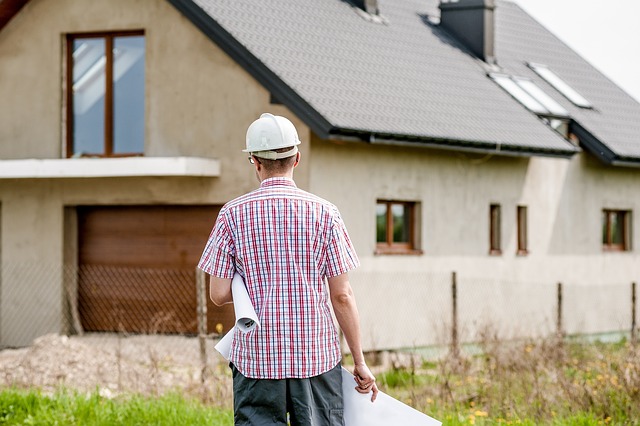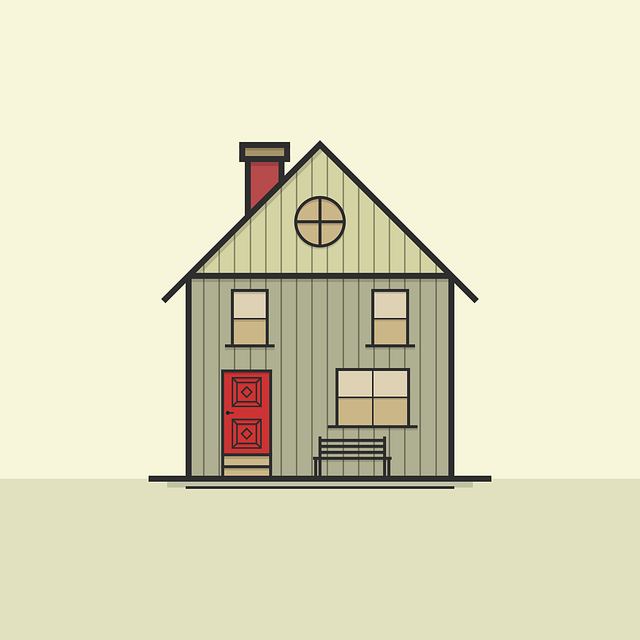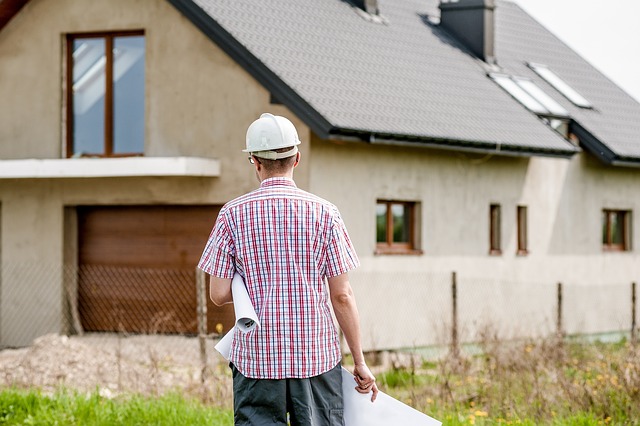Maintaining an HVAC system is crucial for its long-term performance and comfort within your home throughout the year. Key tasks under Home Repair and Maintenance include changing or cleaning air filters every 1 to 3 months during heavy use periods, scheduling annual professional inspections to catch potential issues early, and ensuring components like coils, electrical connections, and refrigerant levels are clean and functioning properly. Lubricating motors and adjusting thermostat settings also contribute to system accuracy and efficiency. Regular HVAC care prevents minor problems from escalating, leading to better energy savings and a longer lifespan for your system. For those without the expertise, consulting certified professionals for these services is recommended to ensure peak system performance and adherence to Home Repair and Maintenance best practices. Addressing issues promptly upon noticing signs of malfunction, such as unusual sounds or high energy bills, is essential. By understanding each component's role—from the outdoor unit and indoor coils to the thermostat and ductwork—homeowners can maintain their HVAC systems effectively, avoiding major repairs and ensuring a reliable and operational system for years to come.
Maintaining a well-functioning HVAC system is paramount for year-round comfort in your home, ensuring both energy efficiency and longevity. This article serves as a comprehensive guide to mastering HVAC maintenance and repair, empowering homeowners with the knowledge to uphold their systems effectively. We’ll explore the critical components of proper HVAC care, common repairs, and how to select a trusted specialist for top-notch service. By understanding seasonal routines, recognizing warning signs, and knowing when professional expertise is necessary, you’ll keep your HVAC system in peak condition, aligning with best practices in home repair and maintenance.
- Essential Components of Effective HVAC Maintenance for Homeowners
- – Understanding Your HVAC System: An Overview of Key Parts and Functions
Essential Components of Effective HVAC Maintenance for Homeowners

Regular upkeep of an HVAC system is crucial for its longevity and efficiency, ensuring that homeowners enjoy a comfortable living environment year-round. Effective maintenance involves several key components that homeowners should prioritize to maintain their HVAC systems in optimal condition. Firstly, filtration systems require routine checks and replacements to prevent dust and debris from accumulating, which can impede airflow and degrade system performance. Clean or replace filters at least every 1 to 3 months during active heating and cooling seasons to maintain air quality and extend the lifespan of your HVAC equipment.
Moreover, annual inspections by a qualified professional are essential for identifying potential issues before they escalate into costly repairs. These professionals can clean coils, inspect electrical connections, test for refrigerant leaks, and ensure that all moving parts operate smoothly. Additionally, lubricating motors and checking thermostat calibration are part of the maintenance routine that homeowners should not overlook. By addressing these components regularly through Home Repair and Maintenance practices, homeowners can prevent minor problems from becoming major malfunctions, ensuring their HVAC systems run efficiently and effectively throughout the year. Regular upkeep not only enhances system performance but also contributes to energy savings and a longer service life for the entire HVAC system.

Regular HVAC maintenance is a cornerstone of home repair and maintenance, ensuring that your heating, ventilation, and air conditioning systems operate efficiently throughout the year. A well-maintained HVAC system not only extends its lifespan but also optimizes energy usage, leading to cost savings and reduced environmental impact. Homeowners should prioritize scheduling annual check-ups with certified professionals who can clean or replace filters, inspect for leaks, and verify that all components are functioning as intended. These proactive steps can prevent minor issues from escalating into major malfunctions, thus averting the need for costly repairs in the future. In addition to regular service, it’s crucial to address any repair needs promptly. Signs of malfunction, such as unusual noises, increased energy bills, or inconsistent temperatures, should be assessed by a professional. By investing in timely and quality HVAC repairs, homeowners can maintain a comfortable living environment while safeguarding their system’s performance and longevity. This commitment to home repair and maintenance is essential for the overall health and functionality of your home’s climate control systems.
– Understanding Your HVAC System: An Overview of Key Parts and Functions

Regular maintenance of your HVAC system is crucial for its longevity and efficiency, which falls under home repair and maintenance practices. To effectively maintain and repair your HVAC system, one must first have a clear understanding of its key components and their functions. The system typically includes an outdoor unit, an indoor unit, a thermostat, ductwork, refrigerant lines, an air filter, and various moving parts such as fans and blowers. The outdoor unit, which houses the condenser coil, releases heat to the outside air and plays a pivotal role in the cycle of heating and cooling your home. The indoor unit, containing the evaporator coil, works in tandem with the outdoor unit to condition the air. The thermostat serves as the control center, signaling when to turn on or adjust the HVAC system based on the set temperature. Ductwork facilitates the distribution of treated air throughout your home, and regular cleaning can improve overall efficiency. Refrigerant lines transport the refrigerant between the indoor and outdoor units, allowing for heat exchange. Air filters are critical for maintaining indoor air quality by trapping dust, pollen, and other airborne contaminants. Regular checks and cleaning of these components ensure that your HVAC system operates at peak performance, which is integral to home repair and maintenance routines. Identifying issues early, such as leaks or clogged filters, can prevent more extensive repairs down the line and extend the lifespan of your system. Understanding how each part contributes to the overall function of your HVAC system empowers you to perform basic maintenance tasks effectively or recognize when professional repair services are needed.
Regular upkeep of your HVAC system is pivotal for maintaining a comfortable living environment. By familiarizing yourself with the essential components of effective HVAC maintenance, homeowners can extend their system’s lifespan and ensure optimal performance. Professional repair services should be enlisted when issues arise to prevent minor problems from escalating. Home Repair and Maintenance practices are not merely reactive but proactive measures that safeguard against the discomfort and potential hazards associated with HVAC malfunctions. In conclusion, investing in your HVAC system’s maintenance is a wise choice for any household, promising energy efficiency and cost savings over time.

